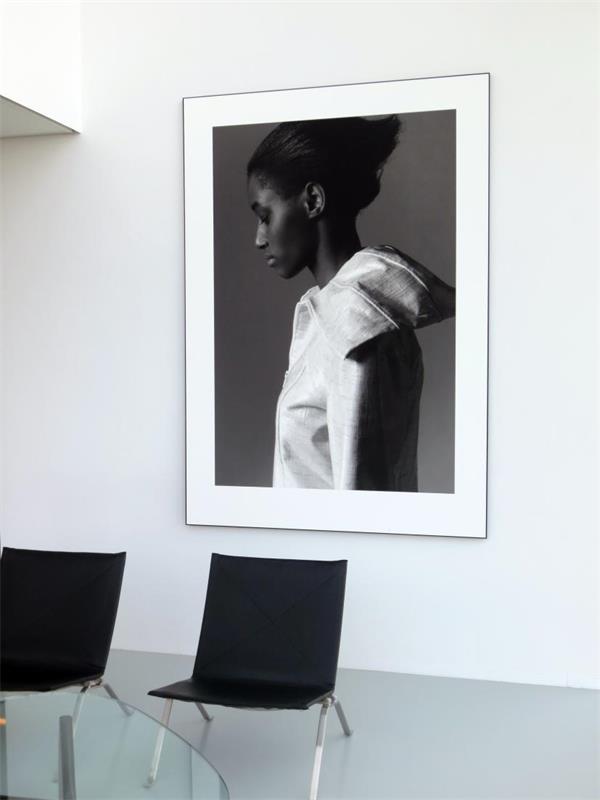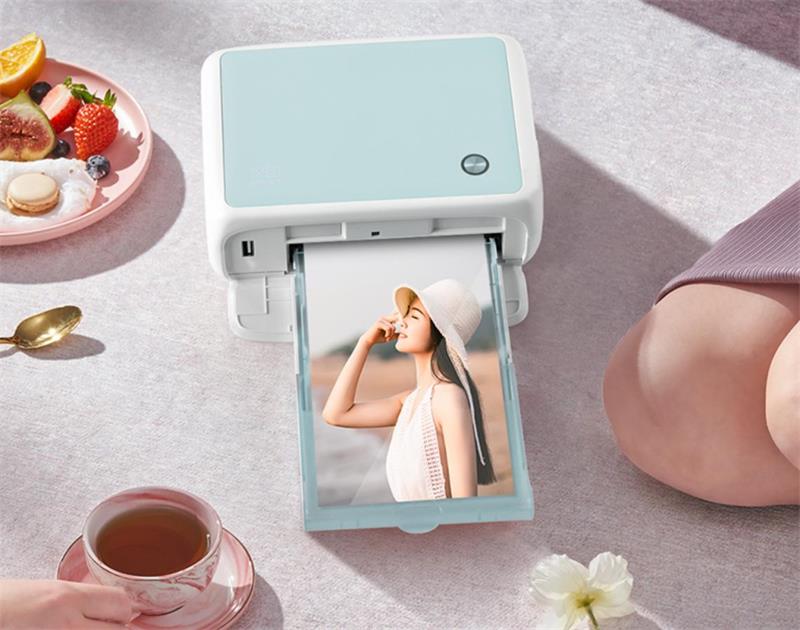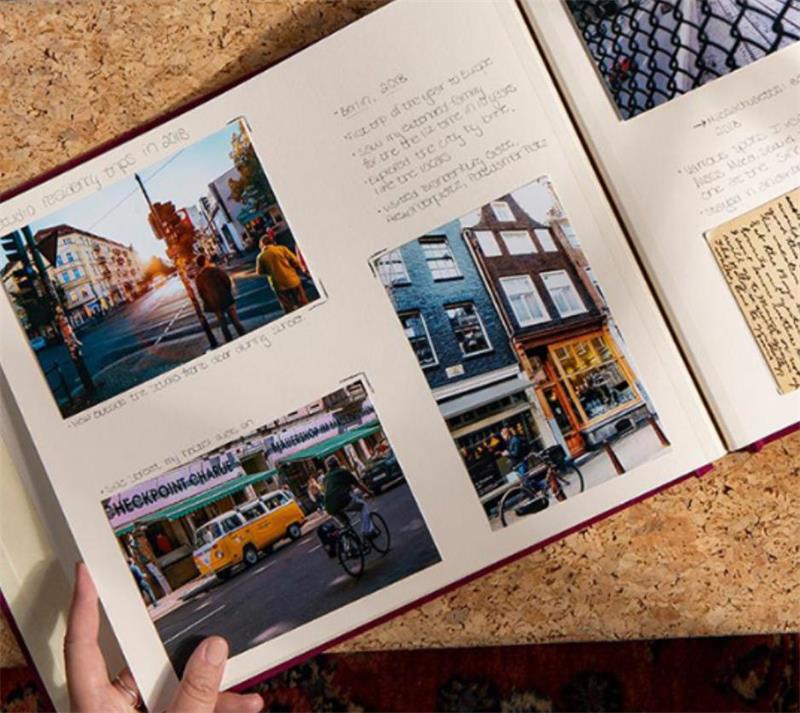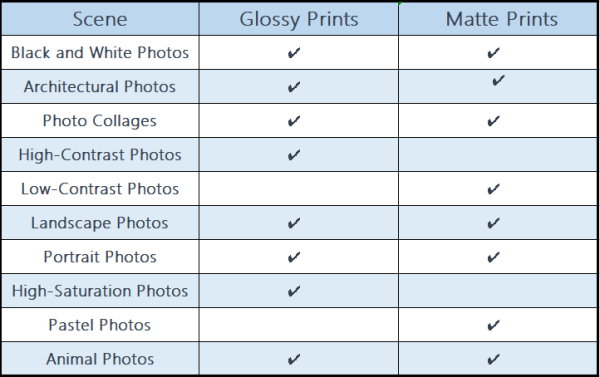Matte vs. Glossy Photo Prints: Which is Better for Printing Pictures?
In every corner of our lives, photos surround us - capturing our memories and allowing us to relive those cherished moments. Therefore, how we print these memories becomes crucial. With numerous printing options available, have you ever found yourself torn between glossy and matte photos?
The difference between these two goes beyond mere appearance; it relates to the visual experience, texture, and durability of the photos. This article aims to provide a deeper understanding of the characteristics of matte and glossy photo prints, enabling you to make an informed choice based on your personal preferences and needs.

Exploring Matte Photo Prints
A.What is Matte Photo Prints?
As the name suggests, matte photo prints have a unique surface texture with a soft, non-reflective finish, resembling a fine-grained texture. While they lack the shiny surface of glossy prints, their semi-matte nature creates a subtle reflection effect. Moreover, matte prints often present colors in a softer and more delicate manner, with smooth transitions between hues.
B. Characteristics of Matte Prints
1.Reduces Light Reflection and Glare
The most noticeable characteristic of matte photos is their ability to effectively reduce light reflection. Whether in bright or changing lighting conditions, viewing matte prints doesn’t require worrying about unwanted glare, making them ideal for display in well-lit or constantly changing environments.
2.Enhances Texture and Depth
Matte photos possess a unique grainy texture that adds depth and dimension to the images, making them visually richer and more three-dimensional. This is particularly beneficial for black and white prints, as the matte texture accentuates the interplay of light and shadows, showcasing intricate details and layers.

3.Resistant to Fingerprints and Smudges
Another advantage of matte prints is their resistance to fingerprints and smudges. Hence, matte photos are well-suited for occasions that involve frequent handling or touch, such as photo books or exhibitions.
Exploring Glossy Photo Prints
A.What is Glossy Photo Prints?
Glossy photo prints utilize smooth, high-gloss paper for printing, offering vibrant colors and clear detail representation as their primary advantages.

B. Characteristics of Glossy Prints
1.Vivid Colors and Strong Contrast
Glossy prints enhance the color vibrancy and provide strong contrast, making the photos more visually captivating and attention-grabbing.
2.High Clarity and Rich Details
Glossy prints excel in providing high clarity and intricate detail representation, making every part of the photo visibly sharp. Moreover, glossy prints are well-suited for frames without glass protection, as they maintain excellent color and clarity even without the added glass barrier.
The HPRT CP4000L Compact Photo Printer, utilizes dye-sublimation technology and high-quality glossy photo paper to produce richly vibrant and vivid photos with exceptional detail and resolution. Moreover, this printer features an automatic lamination function, ensuring long-lasting and fade-resistant prints.
Capable of printing photos up to 4x6 inches, this home photo printer allows you to frame your prints, compile them into photo albums, or scrapbooks, or create a personalized photo wall, adding a touch of warmth to your home. Additionally, you can further unleash their creativity with the HPRT HeyPhoto app, enabling DIY customization such as photo collages, filters, borders, and stickers.

3.Reflective and Lustrous Effect
Glossy prints exhibit high reflectivity and a lustrous surface, adding a touch of sophistication to the photos.
However, despite the advantages of glossy prints in color and detail representation, they also have their drawbacks. For example, glossy photos tend to produce strong reflections under bright lighting, making it difficult to view them in well-lit environments. Additionally, if you need to handle or touch the photos frequently, glossy prints may not be ideal as they are prone to fingerprints and smudges.
Lastly, for photos with low color contrast, subtle color transitions, or a soft tone, choosing glossy prints may not be the most ideal option. While glossy prints can accurately reproduce colors, the reflective nature of glossy prints makes it more challenging to observe contrast changes in the image compared to matte prints.
Matte vs. Glossy: Making the Right Choice
Here is a table providing options for glossy and matte prints for various scenes and photo types:

In reality, making a decision about printing matte photos or glossy pictures often involves considering additional factors, such as the display environment (e.g., the presence of strong lighting), the need for frequent photo handling (where matte prints’ resistance to fingerprints and smudges becomes advantageous), and the content of the photo (e.g., matte prints may be more suitable for light or low-contrast images compared to glossy prints).
Furthermore, personal aesthetic preferences play a role. Do you prefer vibrant colors? Do you value clear detailed representation? Do you appreciate reflective and glossy effects in photos?
Whether it’s matte photo printing or glossy prints, each possesses its unique charm and applicable scenarios. Both printing methods can capture the beauty of your photos; it’s just that they differ in terms of color representation, texture, and durability. When deciding between matte and glossy, the key is to consider the characteristics of the photos themselves, along with the display environment, intended usage, and personal aesthetic preferences, to make a choice that best suits your needs.








